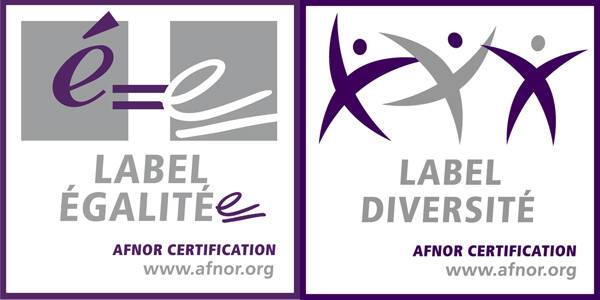AT ENSAPC, IT IS POSSIBLE TO EARN THE DNSEP DEGREE THROUGH VALIDATION OF ACCUMULATED KNOWLEDGE AND EXPERIENCE (VAE)
Prerequisites
How VAE works
Faculty support
How to apply
Registration fees
Partial validation
VAE calendar for 2025-26
Document downloads
Validation of accumulated knowledge and experience (VAE) is a process that enables individuals to fulfill some or all of the requirements of a degree, professional certification, or occupational title based on work experience (including volunteer work). The applicant’s experience is assessed by panels composed of individuals qualified in the field of study for which the applicant seeks experiential credit.
The master’s-equivalent DNSEP (Diplôme National Supérieur d’Expression Plastique) granted by ENSAPC appears in the French national registry of occupational certifications (RNCP, level 7) under the RNCP36752 code whose wording is “DNSEP – National Higher Diploma in Plastic Expression (DNSEP). ENSAPC is a validation center for the VAE of the DNSEP Art option.
PREREQUISITES
Under French labor law, all persons, regardless of age, nationality, civil status, or level of formal academic achievement, have the right to seek recognition of their accumulated knowledge and experience, provided they have at least one year of experience that is directly related to the certification they seek. (The one-year requirement is specified in labor legislation adopted on August 8, 2016.)
The experience may have been acquired in France or abroad; it may be paid or unpaid (volunteer), full or part time, and gained continuously or in segments. Initial and follow-up training in work settings may be counted toward the time requirement.
HOW VAE WORKS
The process of assessing the academic equivalent of the candidate’s accumulated knowledge and experience unfolds in two steps:
Step 1 is a determination of whether the candidate meets the formal requirements for VAE. When the school receives a VAE application, a committee assesses the correspondence between the candidate’s paid and unpaid experience (including volunteer work) and the requirements of the credential sought. Candidates whose application passes this initial review are invited to apply for the credential. The committee’s favorable decision on formal admissibility does not affect the later decision of the DNSEP jury about whether or not to award the degree.
Step 2 consists of the candidate’s preparation for the degree and defense of his or her candidacy before a jury. Candidates make their case to a jury consisting of five members: three members from outside the school (including two practicing professionals and one individual competent in the candidate’s field), and two members of the ENSAPC faculty. One of the faculty members must hold a doctorate; the other must practice the same artistic specialty as the candidate. The examination consists of two parts:
1.a 30-minute interview relating to the application file for validation of acquired skills parts 1 and 2, which must state the nature of the candidate’s artistic and professional commitments, their previous work as well as their motivation to obtain the certification sought in light of these issues;
2. an interview lasting 40 minutes on the presentation of the candidate’s artistic work. The candidate presents in a formal, critical, reasoned and methodological manner, his/her work produced over the course of a full year preceding the date of the test. He/she must highlight his/her commitments to the artistic and professional fields and highlight his/her ability to mobilize historical and theoretical background likely to enlighten the jury on the work presented.
FACULTY SUPPORT
Candidates may elect to receive individualized educational support in the form of meetings with faculty during the period of preparation preceding the final exams. This is optional but recommended, as it offers candidates methodological assistance in preparing their presentation to the jury.
HOW TO APPLY
Candidates should download the request for validation of experience (VAE, part 1) and the eligibility checklist (CERFA) from the ENSAPC site. They should complete part 1 of the VAE application, which concerns their work history, as well as the eligibility checklist.
These two elements, accompanied by supporting documents, must be sent by email to the VAE coordinator identified below, the postmark serving as proof no later than November 14, 2025 inclusive until midnight (date of email serving as proof):
Nadège Coret
Assistante pédagogique
ENSA de Paris Cergy
2 rue des Italiens
95000 Cergy-Pontoise
T : 01 30 30 78 87
Email : nadege.coret@ensapc.fr
Candidates must include a check for €83, payable to ENSAPC, to cover the cost of the eligibility review. Incomplete applications will not be considered.
Candidates may submit, in a given calendar year, only one VAE application for a given degree at a given institution. In all, candidates may submit no more than three applications (for three different degrees) in a given year.
REGISTRATION FEES
Registration fees for the VAE process are set each year by the Ministry of Culture. In 2025/26, they are €814. With their application, candidates must include a check for €83 to cover the cost of reviewing their application for formal eligibility, the first step in the VAE process.
Candidates whose application is deemed admissible must then make a second payment of €731 for the second part of the VAE process: administrative expenses, jury costs, and follow up. Candidates whose application is deemed inadmissible are not entitled to a refund of their €83 application fee.
For candidates who lack financing for the second part and who submit a sworn statement that no third party is assuming the cost, the ENSAPC director is empowered to reduce the fee to €366.
French labor law likens support for VAE candidates to continuing education, particularly with respect to paying for it. Thus the training program is expected to be financed by an appropriate institution or organization. Candidates who are employed may ask their employer to pay for the VAE process and to grant them leave to meet the VAE requirements. Candidates who are seeking employment may request similar support from their local employment center.
PARTIAL VALIDATION
The jury may find gaps in candidates’ knowledge and skills that require additional training. In such cases, candidates may receive “partial validation”, which is valid for five years from the date of the jury’s finding. At the discretion of the jury, partial validation may entitle the candidate to receive a DNA degree, which is equivalent to a licence (bachelor).
VAE CALENDAR FOR 2025-2026
|
Submission of applications: Part I of the application form for VAE +
|
October 6, 2025 to November 14, 2025 inclusive (application submission included, by email only)
|
|
Determination of eligibility by committee
|
December 1-12, 2025
|
|
Candidates informed of committee’s decisions
|
Thursday, January 15, 2026
|
|
Faculty support (for candidates who elected it and subject to staff availability)
|
2nd semester 2026: from January 19 to June 19, 2026 |
|
Submission of part 2 of application: portfolio and presentation of past professional experiences (activities carried out in connection with the reference material of the diploma in question and artistic project)
|
June 19, 2026
|
|
VAE defenses
|
From July 1 to July 10, 2026 (Provisional dates, subject to change) |








